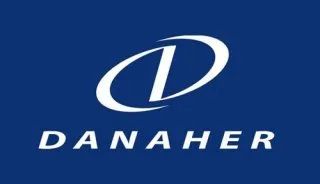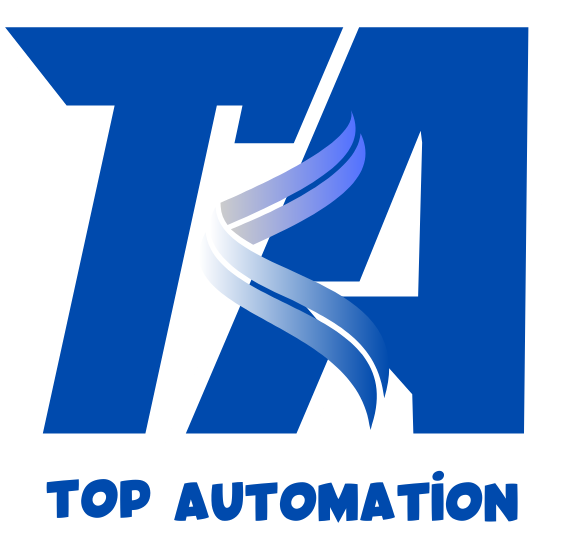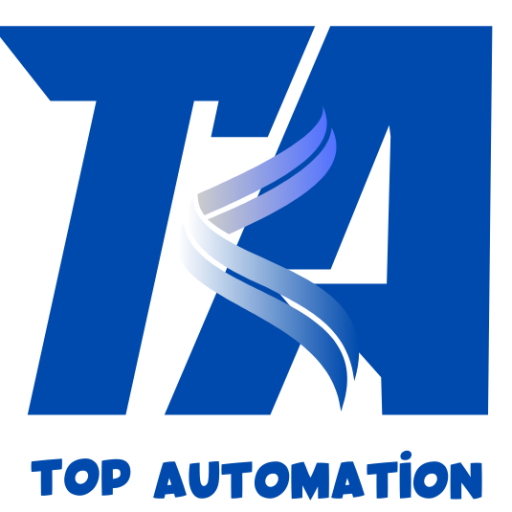Industrial automation is the collective term for the measurement, operation and process control of machinery, equipment or production processes in order to achieve the desired goals without direct human intervention. Industrial automation is one of the key prerequisites for the launch of Industry 4.0 in Germany, primarily in the fields of mechanical engineering and electrical engineering. The domestic industrial automation industry is highly competitive, and manufacturers of industrial automation equipment and products continue to dominate the world’s major markets for the supply of upstream products. Now, let’s take a look at some of the most profitable industrial automation companies.
1.Siemens (Germany)![]()
Siemens AG (FWB: SIE, NYSE: SI) is a leading global company in the field of electronics and electrical engineering, founded by Werner von Siemens in 1847. Today, its international headquarters are located in Munich, Germany. Siemens AG is listed on the Frankfurt Stock Exchange and the New York Stock Exchange.
Siemens holds an important position in the industrial automation and control (industrial control) industry. Widely used Siemens industrial automation and control products include “PLCs, variable frequency drives, touchscreens, modules, sensors, low-voltage devices, servo motors and industrial control computers”. In addition, Siemens is the world’s largest supplier of products, systems, solutions and services in the fields of industrial automation and building technology, serving all sectors of Chinese industry.
Siemens is present in more than 190 countries and has about 600 plants, research centers and sales offices worldwide. The company’s operations are focused on four main business areas: Industry, Energy, Infrastructure & Cities and Healthcare. Siemens’ global business is managed by 13 business units, including Siemens Financial Services Group and Siemens Real Estate Management Group, in addition to a joint venture, Boise Home Appliances Group.
Currently, Siemens owns 15 brands such as Siemens and Bosch, and has 39 factories in 27 regions around the world, making it the largest home appliance manufacturer in Europe and the fourth largest in the world. With the increasingly fierce competition in the global home appliance market, the company, which operates globally and produces high-end home appliances, has set its sights on the mature Chinese market.
2.ABB (Switzerland)![]()
The ABB Group is one of the Fortune 500 companies, headquartered in Zurich, Switzerland.ABB was founded in 1988 as a result of the merger of two international companies: ASEA in Sweden and BBC Brown Boveri in Switzerland.ASEA and BBC were founded in 1883 and 1891, respectively.
ABB is a manufacturer in the field of power and automation technology.ABB’s technologies help to improve the performance of power, utility and industrial customers while minimizing adverse environmental impacts.The ABB Group operates in more than 100 countries around the world and employs 117,000 people.
ABB has a wide range of product lines including power and distribution transformers, high, medium and low voltage switchgear products, AC and DC power transmission and distribution systems, power automation systems, a wide range of measurement devices and sensors, real-time control and optimization systems, robotics hardware and software, energy-efficient motors and drive systems, power quality, switching and synchronization systems, as well as circuit breakers and switchgear for power system security. These products are widely used in the industrial, commercial, power and utility sectors.
ABB’s cooperation with China has a history of more than 100 years, in 1907 ABB provided China with the first steam boiler, in 1974, ABB set up a China business unit in Hong Kong, and in 1979 set up a permanent office in Beijing, In 1994, ABB moved its China headquarters to Beijing, and formally established ABB (China) Co. Currently, ABB has 15,300 employees in China, serving 30 local companies and 40 sales and service branches in 60 cities.In 2009, ABB’s sales in China reached 4.3 billion U.S. dollars, continuing to maintain ABB’s global leading market position.ABB attaches great importance to attracting, training and retaining talent, and actively undertake social responsibility, is one of the respected employers.
In China, ABB has established a strong manufacturing base through close cooperation with local partners in the fields of power transmission and distribution, automation products and systems.
3.Emerson (USA)![]()
Emerson is a diversified global manufacturer. Through its businesses in process management, industrial automation, network power, climate technologies, and commercial and residential solutions, Emerson combines technology and engineering to deliver innovative solutions to customers. China is one of the fastest-growing regions for Emerson’s global business, and has been Emerson’s second-largest market after the U.S. since fiscal 2002. Currently, Emerson has established more than 40 businesses in China, including more than 30 manufacturing plants and nearly 20 R&D centers.
Emerson operates five main business segments: Process Management, which provides measurement, control and diagnostic capabilities for automated industrial processes that produce food, fuel, mechanical and electrical products; Industrial Automation, which provides integrated manufacturing solutions worldwide; Network Power, which provides power and environmental conditioning for telecommunication systems, data networks and business-critical applications; and Climate Technologies, which improves air conditioning and refrigeration technologies to enhance residential and commercial comfort, food safety and energy efficiency; Appliances and Tools, providing electric motors and customized solutions for a variety of applications, as well as household appliances and integrated home solutions.
4.Rockwell Automation (USA)![]()
Rockwell Automation, headquartered in Milwaukee, Wisconsin, USA, is a multinational industrial automation company that provides cutting-edge power, control and information technology solutions for the manufacturing industry. Rockwell Automation integrates well-known brands in industrial automation with the goal of creating comprehensive automation solutions that help customers increase productivity. These brands include control products and engineering services from Allen-Bradley and industrial control software from Rockwell Software. The company is also a leading provider of customer relationship management technologies and applications that help organizations effectively manage customer relationships.
Global technical and customer services are an important part of Rockwell Automation’s business. The company has nearly 5,600 distributors, systems integrators and agents in 80 countries worldwide. Partnerships with reliable local companies in areas such as distribution, software and products greatly enhance the company’s global capabilities. Well-recognized brands and strategic partnerships enhance the company’s ability to deliver high-quality, reliable industrial solutions on a global basis.
5.Schneider Electric (France)![]()
Schneider Electric, one of the Fortune 500 companies, was founded in 1836 by the Schneider brothers and is headquartered in Luière-Marmeson, France. Schneider Electric is a leader in energy management, providing comprehensive solutions for energy and infrastructure, industrial process control, building automation, data centers and networks. The company has a strong presence in the markets of energy and infrastructure, industrial process control, building automation, data centers and networks, as well as in residential applications.
Schneider Electric provides comprehensive solutions for energy and infrastructure, industrial process control, building automation, data centers and networks in more than 100 countries and territories. Schneider Electric is committed to providing customers with safe, reliable and efficient energy solutions. With the successful expansion of the company’s business in China, Schneider Electric attaches great importance to its development in China and is willing to contribute to the opening and modernization of China through further trade and cooperation.
Schneider Electric provides customized and efficient solutions for a wide range of industries, from power generation and distribution to electricity consumption. It is estimated that by 2003, the world will have invested $13 trillion in upgrading the global transmission and distribution network. Facilities of all types account for one-third of the world’s energy consumption and 70% of total electricity use. These areas are also the focus of Schneider Electric’s attention in all markets
6.Yokogawa(Japan)![]()
(YOKOGAWA), a world-renowned leader in measurement, industrial automation control and information systems, has been committed to providing cutting-edge expertise to support its customers in improving operational efficiency and contributing to the development of the industry since its establishment in 1915.
Yokogawa Electric was one of the earliest foreigners in the industry to enter the Chinese market, opening a liaison office in Beijing in 1979 and establishing its first joint venture in China, Yokogawa West One Co. in 1985. in October 2002, the company set up a wholly owned subsidiary in Suzhou New District Industrial Park – Yokogawa Electric (Suzhou) Co. -In October 2002, the company established a wholly owned subsidiary, Yokogawa Electric (Suzhou) Co. The factory has a total area of 135,000 square meters, with an initial production area of 25,000 square meters for flow meters and recorders. The flow calibration system established there can calibrate flowmeters with a maximum aperture of 2.6 meters, the largest calibration system in the world.
On January 1, 2006, Yokogawa Electric China Trading Co. This company is a key member of the Yokogawa Group and its functions include sales, market development, engineering and technical services. The company is actively expanding into the Chinese market in cooperation with eight other companies active in the Chinese domestic market.
To demonstrate its focus on reliability, safety and foresight in system products, Yokogawa Electric has introduced the corporate philosophy of “VigilantPlant”. In the field of measurement, they offer solutions for analysis, quality management, sensors and operator terminals. In the control field, this includes production control, safety management, and data collection and logic control. The optimization area includes production management, advanced control, asset management and operations support. In keeping with this corporate philosophy, Yokogawa Electric continues to innovate using cutting-edge technology to contribute to industrial society.
7.Mitsubishi(Japan)![]()
Mitsubishi Electric is a multinational corporation that has been engaged in research, development and manufacturing of cutting-edge technologies and specialized fields for more than 90 years. Its main businesses include information and communication systems, electronic components, heavy-duty electrical systems, industrial automation systems, automotive electrical equipment and household appliances. They also hold leading positions in areas such as satellites, defense systems and ventilation equipment. In addition, Mitsubishi Electric has superior display equipment and display unit technology.
As of April 2010, Mitsubishi Electric has established 24 joint ventures and wholly owned enterprises in China. These companies are involved in various fields such as automotive parts, semiconductor and electronic equipment production, power transmission and distribution equipment, elevators, railroad vehicle motors, industrial automation equipment and household appliances, and are actively involved in technology transfer.
As of November 2025, the total number of Mitsubishi Electric’s joint ventures and wholly owned enterprises in China has reached 34 companies. These companies are involved in various fields such as automotive parts and components, semiconductor and electronic equipment production, power transmission and distribution equipment, elevators, railroad vehicle motors, industrial automation equipment, and household appliances, and are actively engaged in technology transfer.
8.General Electric (USA)![]()
General Electric is a large industrial company controlled by the Morgan consortium. In its 80-year history, General Electric has acquired many domestic and foreign companies through various means and has shares in many enterprises. In 1939, General Electric had only more than 30 factories in the United States, and by 1947, it had increased to 125. By the end of 1976, General Electric had 224 manufacturing plants in 35 states in the United States. Internationally, General Electric gradually merged with electrical engineering companies in Italy, France, Germany, Belgium, Switzerland, Britain, Spain and other countries. In 1972, General Electric had 33 subsidiaries in Europe, 10 subsidiaries in Canada, 24 subsidiaries in Latin America, 11 subsidiaries in Asia, 3 subsidiaries in Australia, and 1 subsidiary in Africa. By the end of 1976, General Electric had 113 manufacturing plants in 24 countries, becoming a large multinational company. In 1977, GE had total assets of $13.696 billion and total revenue of $17.515 billion, ranking fifth among large American companies, with 384,000 employees. The company began building a new missile production plant in 1956 and provided nuclear weapons to Japan and other foreign countries. In 1976, it cooperated with France to develop turbofan aircraft and engines that can be installed on submarines carrying torpedoes or rockets. In 1973, it received $1.42 billion in military purchase orders, ranking second among large companies.
General Electric has six major industrial sectors: commercial finance, consumer finance, industry, infrastructure, healthcare, NBC Universal, and consumer and industrial. GE Consumer Financial Services under GEMoney provides credit services and financial products to consumers, retailers, and auto dealers around the world, including personal credit cards, personal loans, bank cards, auto loans and leases, mortgages, group travel and shopping cards, account consolidation, home equity loans, credit insurance, etc.
9.Danaher Corporation(USA)
Danaher Corporation, a multinational conglomerate established in 1969, specializes in industrial instrumentation and precision equipment solutions. By 2011, the company achieved global revenue of $16.1 billion, reflecting a 28% year-over-year growth rate, solidifying its position as a global leader in the advanced instrumentation sector. Demonstrating exceptional financial performance, Danaher delivered a cumulative shareholder return of 229% from 2003 onward, outperforming industrial peers such as Honeywell (215%) and United Technologies Corporation (210%). The corporation employs approximately 60,000 professionals across its global operations.
A key subsidiary, Danaher Motion SA (Switzerland), serves as the group’s strategic manufacturing hub for high-frequency power inverters. This product line contributes roughly one-sixth of Danaher’s worldwide sales, exceeding $10 billion annually. While the Danaher-branded inverters may lack broad consumer recognition, its acquired subsidiaries—including ACOMEL (a precision drive systems innovator)—and its legacy brand WARNER (Danaher’s former corporate identity) maintain significant industry prominence. Thus, widely recognized brands such as ACOMEL, WARNER, and DANAH…
10. Honeywell(USA)![]()
Honeywell International Inc. is a diversified technology and manufacturing enterprise with annual revenues surpassing $30 billion. Renowned as a global leader in advanced manufacturing technologies, it delivers mission-critical solutions across aerospace systems, industrial automation, building management technologies, automotive propulsion components, turbocharging systems, and specialty engineered materials. Headquartered in Morris Plains, New Jersey, the corporation maintains a workforce exceeding 116,000 professionals and operates across 100+ countries.
Honeywell’s innovation-driven strategy centers on deploying proprietary technological solutions and high-value integrated systems to empower its global clientele. The company’s portfolio includes over 23,000 active patents, creating sustainable competitive differentiation for both its operations and partners. Through its client engagement framework, Honeywell optimizes cross-functional collaboration and process digitization, ensuring operational excellence and lifecycle value maximization for stakeholders.
In the Chinese market, Honeywell has emerged as the premier technology enabler for mission-critical industries, including downstream hydrocarbon processing, petrochemicals, pulp/paper manufacturing, power generation, metals production, and FMCG (fast-moving consumer goods). Its industrial IoT-enabled control architectures and building automation platforms are deployed in large-scale infrastructure projects such as five-star hotels, smart office complexes, government facilities, and academic campuses. The company’s fire & gas detection systems and industrial safety protocols set industry benchmarks for operational integrity.
Organized into Building Technologies (commercial and residential automation) and Industrial Solutions divisions, Honeywell China operates through 15 regional hubs, a Shanghai-based Advanced Manufacturing Center of Excellence, and a nationwide technical service lattice. The Tianjin Global Engineering Academy delivers certified training programs in automation engineering, asset performance management, and digital twin implementation, reinforcing Honeywell’s position as China’s most comprehensive industrial technology partner.

